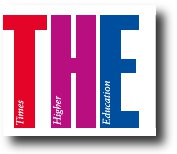 Alice Bell and Adam Corner have an article in the Times Higher Educational Supplement, which is by turns rather strange and complete nonsense, but nevertheless contains one or two interesting snippets.
Alice Bell and Adam Corner have an article in the Times Higher Educational Supplement, which is by turns rather strange and complete nonsense, but nevertheless contains one or two interesting snippets.
The general thrust of the piece seems to be encapsulated in this quote:
"Expecting FoI requests to be able to arbitrate between competing knowledge claims is no more plausible than asking the social services to use FoI to uncover instances of "bad parenting" - it's the wrong tool for the job."
This is truly strange, because I can't think of anyone thinks that you can resolve scientific debates with an FOI request. I'm not therefore sure why an article that shows that the possibility of doing so is implausible should be anything other than deeply trivial. The two authors seem to be conflating two separate issues - whether publicly funded data should be freely available and how scientific debates can be resolved.
The article goes on to repeat endless nonsense about the application of FOI to scientific work. First we have Martin Griffiths, national coordinator for science journalism training at the Royal Statistical Society:
"FoI goes beyond just the data and allows the release of correspondence between scientists. These may not make much sense to outsiders and lead to the kind of language problems we saw in Climategate - with (the word) 'tricks' (being used) and so on - that are everyday parts of science being blown out of proportion."
Mr Griffiths seems to have missed the bit about "hiding the decline", and he clearly hasn't heard that even the whitewashing Russell panel had to rule that this episode was "misleading." It has been said before, but let's just repeat it once more for the benefit of Griffiths, Corner and Bell: if a commercial company, in a listing prospectus, had done what Jones et al did in the Nature trick, the directors would have been jailed. It's very disappointing to see the Royal Statistical Society apparently condoning this sort of behaviour, and serious academics giving it the nod. You would have thought they placed a higher value on their reputations.
Next we have Gabrielle Bourke, a researcher at University College London's Constitution Unit (which presumably studies the FOI laws):
"The ways in which scientists go about their work, such as peer review, don't necessarily sit very well with the FoI policy," she says. "The usual way is not to hand over your data before you have done work on it."
I don't know what sort of research Ms Bourke does, but she clearly hasn't done enough to know that there is no duty under FOI for scientists to release their data until they have published their findings.
Then there is the repetition of the old canard about CRU researchers being swamped by FOI requests.
A great deal has already been written about the motivations of the army of bloggers who bombarded the University of East Anglia with FoI requests.
Clearly not enough has been written though - otherwise Bell and Corner might have noticed the observation from the former Information Commissioner that the level of FOI requests to UEA was nothing out of the ordinary. Just in case we hadn't got their point, Bell and Corner then repeat it, adding their own apparently completely non-expert opinion on the matter:
And at the University of East Anglia, it certainly seemed as if some of the FoI requests satisfied the Information Commissioner's definition of "vexatious", although other (apparently legitimate) requests do also appear to have been ignored by the scientists.
Of course, UEA didn't try to claim the requests as vexatious since publishing four agreements (of a couple of pages each) on their website was not exactly going to be a lot of work was it? To hear publicly funded academics spouting this sort of nonsense is very frustrating. We are paying for this stuff.
It is left to Mike Hulme - perhaps an unlikely source - to actually say something sensible:
"With complex issues like climate change, sophisticated forms of expert knowledge assessment are necessary to weigh conflicting, incomplete or ambiguous evidence. The Intergovernmental Panel on Climate Change (IPCC) is a good example of this. Of necessity, such assessment is discursive and deliberative, and cannot be captured in data, theory or even in formalised recorded words. Here, FoI - if it is being used to reveal the foundations and construction of knowledge - reaches its limits. If scientific knowledge is to continue to warrant public trust, then expert deliberations, eg, the IPCC, should be made public events."
THere's not much chance of that happening, of course, but the sentiment is a fine one.